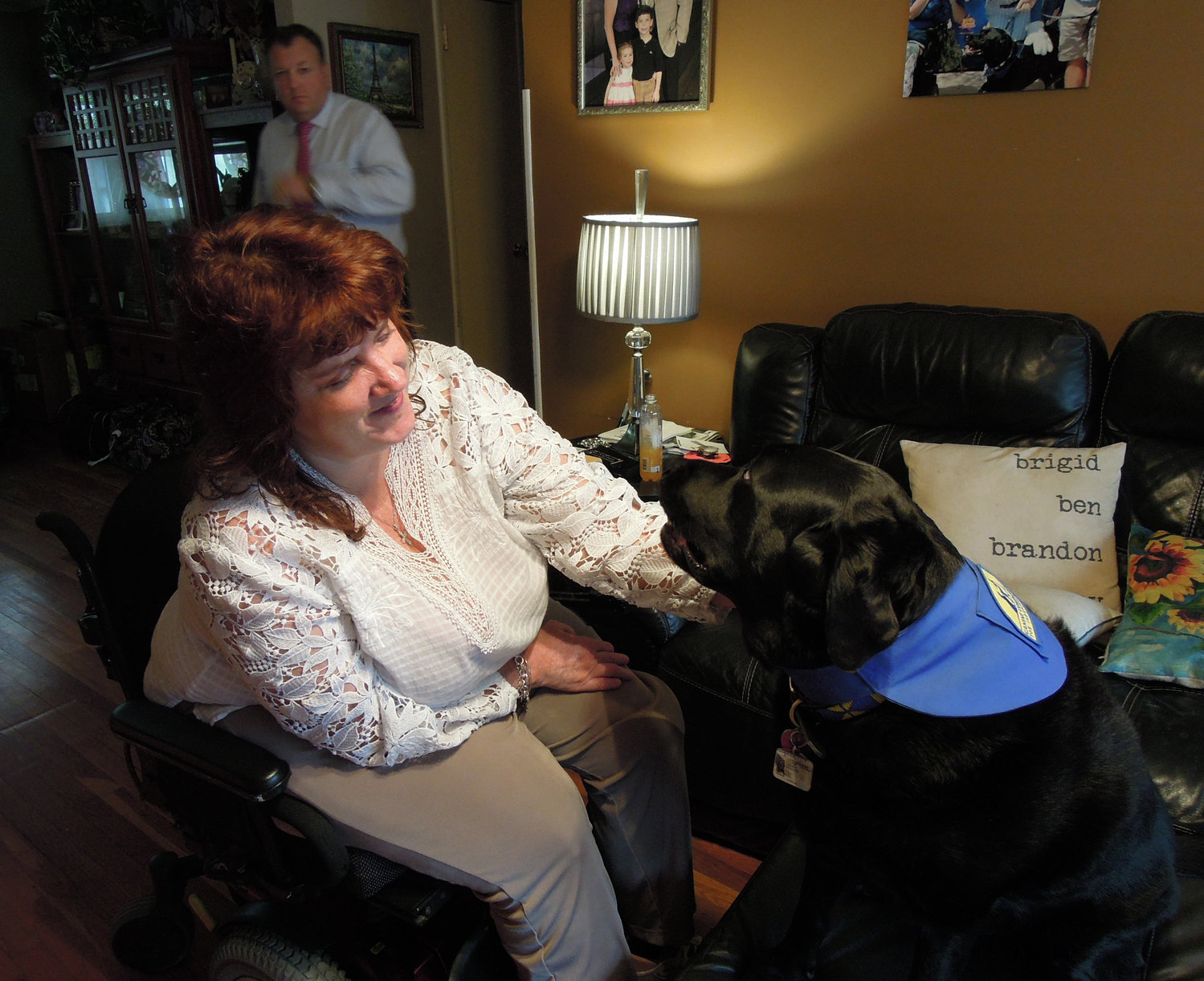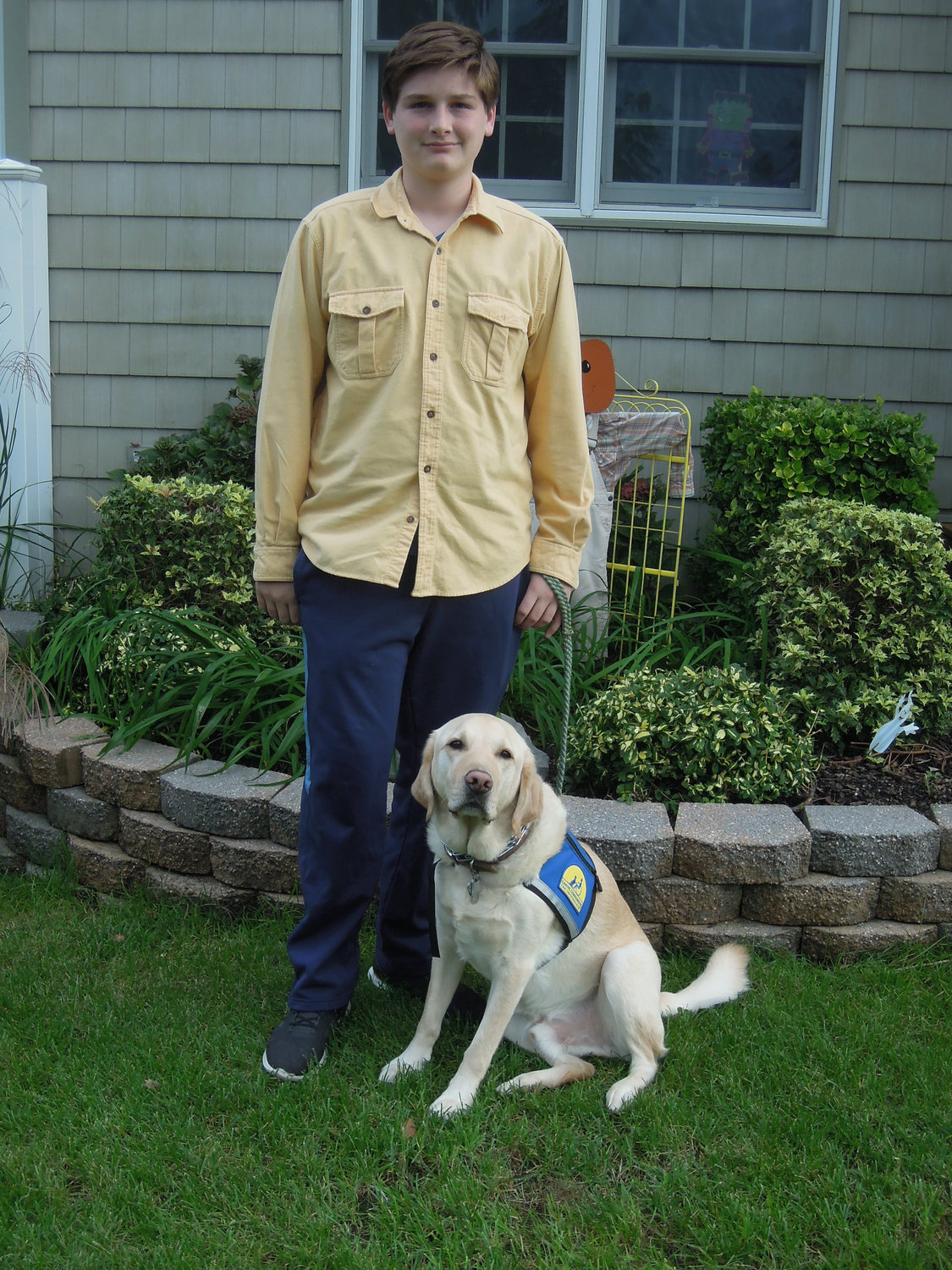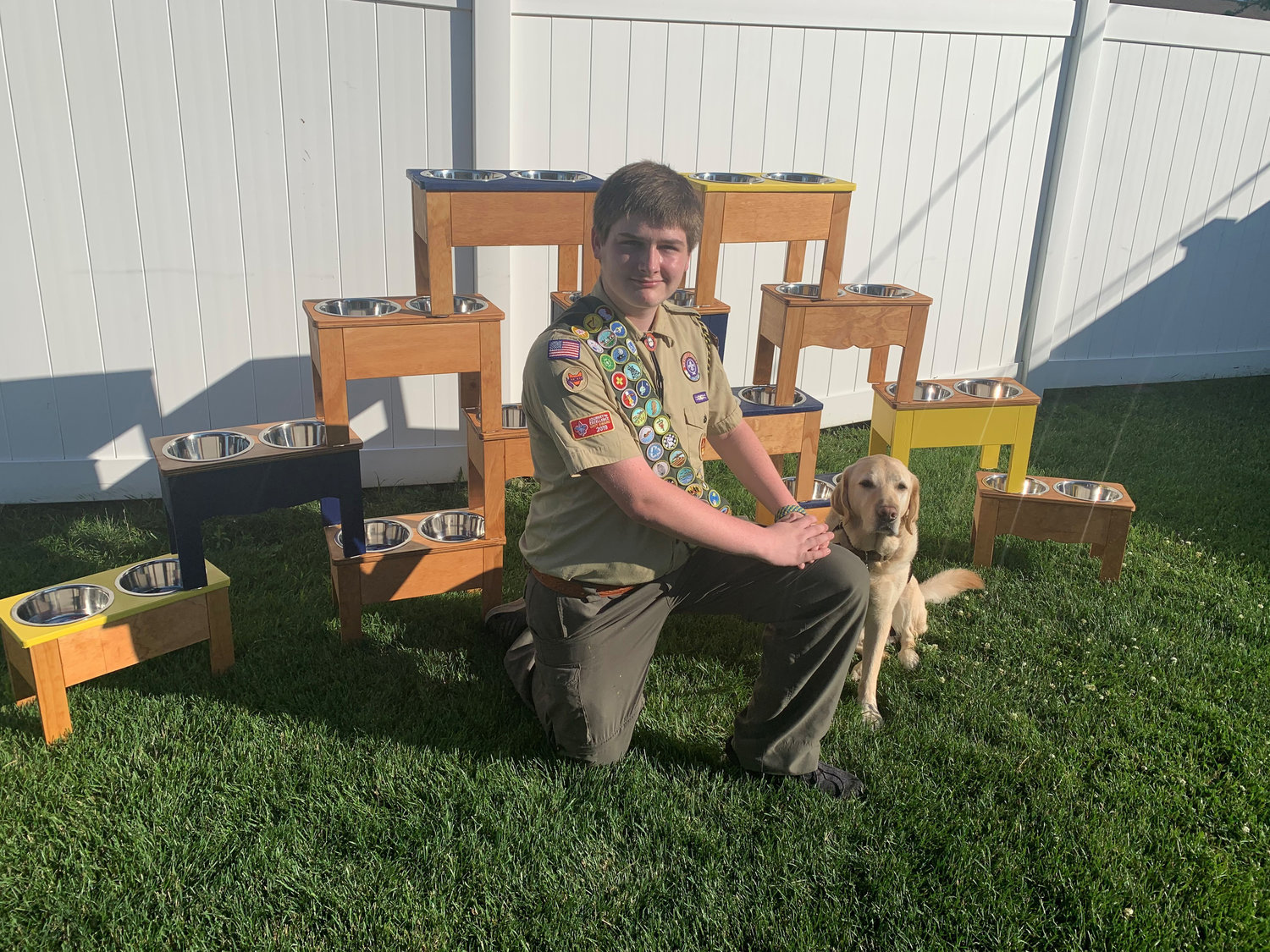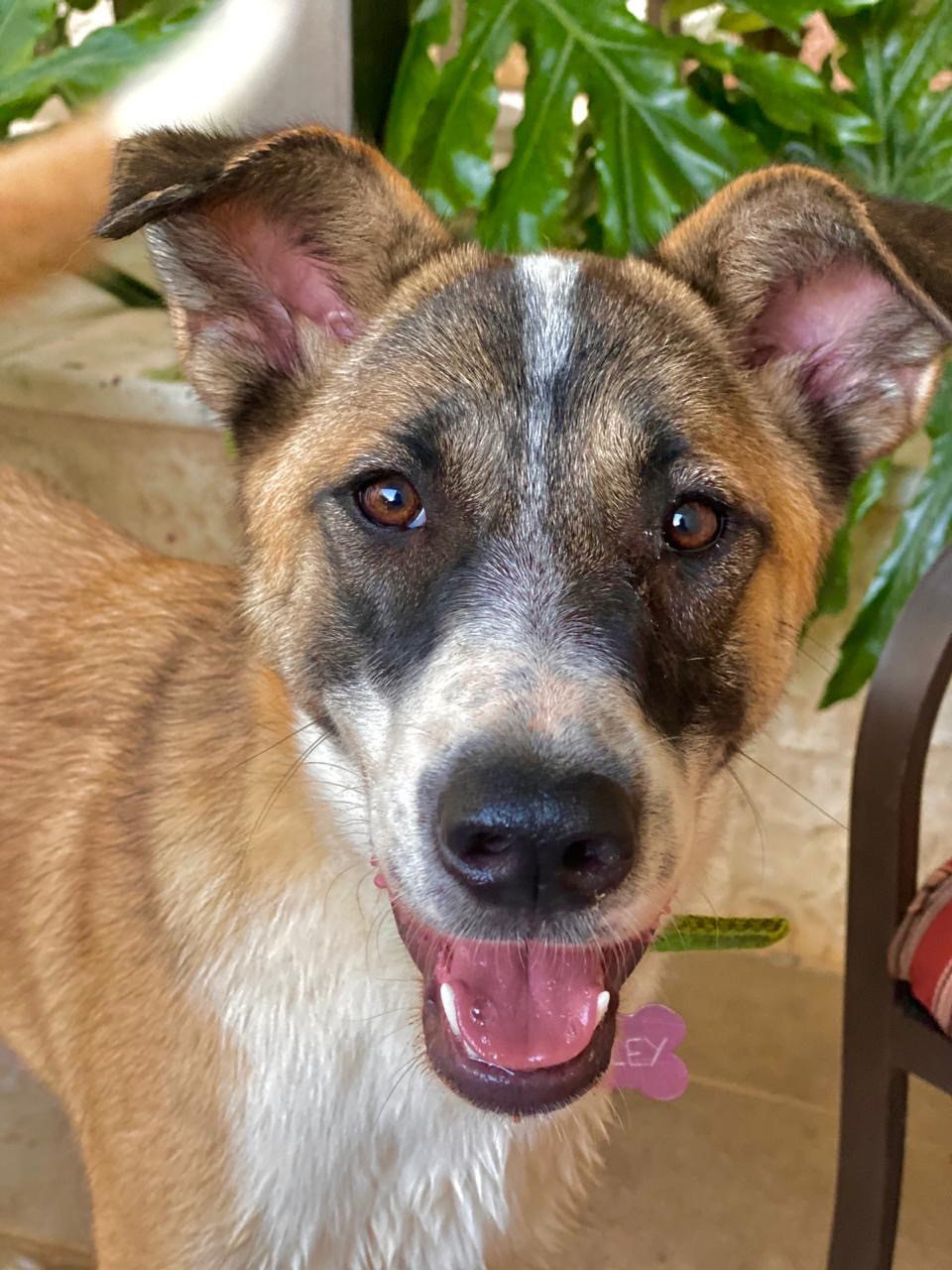Canine companions provide essential services
Luke Tordy says his service dog, Dragon, reconnected him with his life. Brigid Vogt says her dog, Lennon IV, brought a similar transformation. Such matter-of-fact statements are commonplaces from recipients of the life-altering animals provided by Santa-Rosa, Calif.-based Canine Companions for Independence (CCI).
The charity has been training “companions” since 1976 and gifting them to people with a wide range of physical and emotional impairments, from spina bifida to PTSD. Neither Tordy, 16, of Wantagh, or Vogt, 52, of Seaford can praise the charity enough for the transformations their dogs have wrought in their lives.
CCI accepts no payment from companions’ families for the animals that cost roughly $50,000 to train, according to the organization’s media spokesman, John Bentzinger. Although CCI retains nominal ownership of the animals, the gifts are for life.
Since receiving Dragon in 2018 to help with emotional and social adjustments, Tordy has sought ways of giving back. Last year, he broke fundraising records, giving CCI $5,000 in advance of its annual DogFest Rock ‘n’ Roll celebration. This year, the Covid-19 pandemic has prevented CCI from holding a live gathering, but the event will still be held virtually, on Sept. 12. Dogs from Nassau County were put through their paces, and new pairs of dogs and companions were introduced.
In anticipation of the event, Tordy and a team of volunteers made stands for the dogs’ water bowls. “It was part of my Eagle [Scout] project,” Tordy said. “I originally thought we could do it in just a couple of days. But because of Covid, I could only have one or two people over at a time, so it ended up taking about two weeks.”
The MacArthur High School junior expects to receive his Eagle Scout award in about two months and said he is filed the paperwork last week.
Both Tordy and Vogt said their dogs helped them weather the coronavirus pandemic well. Vogt’s husband, Ben, developed a mild case of Covid and had to be quarantined. “It was hard to be separated for those weeks,” she conceded. “But we got through it, and everyone’s
OK now.”
The Tordy family, too, had to cope with serious illness during the past year, in addition to the isolation both Luke and his father, an elementary school teacher in the Babylon schools, experienced due to school closures.
Vogt received Lennon after a severe case of sepsis left her with an impaired memory and the loss of her legs below the knee. The sepsis affected a part of the brain’s frontal lobes called Broca’s area, and Vogt spent six months in the hospital during a rehabilitation process that entailed relearning many of the basic functions most take for granted, like walking and talking.
She depends on Lennon for a range of physical needs — he can open doors, turn on lights or pick up objects that are dropped, for example — it is the companionship that Vogt says is the most critical part of the partnership.
Both Tordy and Vogt agree that the dogs provide a buffer, a way of taking the focus off their disabilities when meeting people. And unlike most service dogs, canine companions are allowed to interact with people in much the same way any pet might, with one key difference: They are always focused first and foremost on the needs of their human partners.
All CCI dogs learn a basic set of 30 commands, no matter what their ultimate assignment might be. After 18-24 months of basic training and socialization with volunteer “puppy raisers,” the animals return to the facility in Medford, where dogs for the Northeastern and Mid-Atlantic regions are trained. There, they are assessed according to the assistance they might best provide and given further specialized training.
After completing training, they are ready to be paired. Candidates come to the Medford facility for two weeks and are matched with potential companions.
Not all dogs make it through the program. Those that are unsuitable as companions are found good homes, Bentzinger said. Many are adopted by their puppy trainers.
Tordy was drawn to Dragon from the outset. “What boy wouldn’t want a dog named Dragon,” he asked. Vogt was a little more reluctant — she had recently lost a longtime pet and didn’t want to go through the experience again. But she bonded well with Lennon.
“The only problem now is that Lennon needs to lose some weight,” Vogt said. “He loves to eat!”
The dogs are all Labradors or Labrador-golden retriever blends, according to Debbie Knatz, head of CCI’s in-house breeding program. CCI places roughly 400 dogs a year from all its U.S. facilities.
For more information about Canine Companions for Independence, contact John Bentzinger at (516) 330-6457 or via email at jbentzinger@cci.org.













